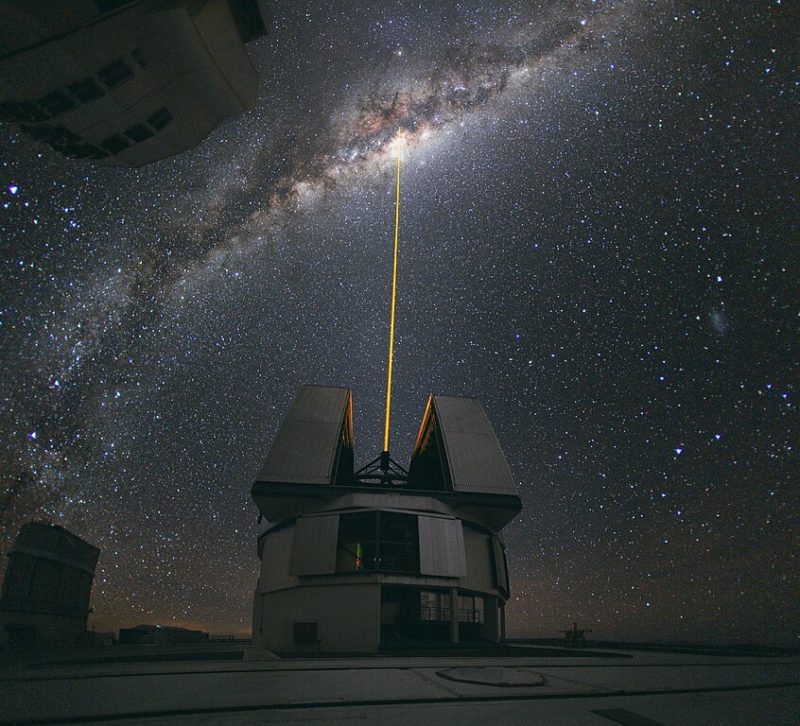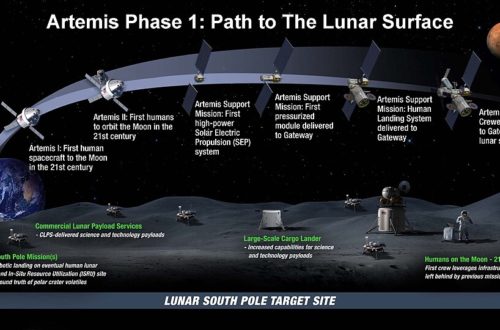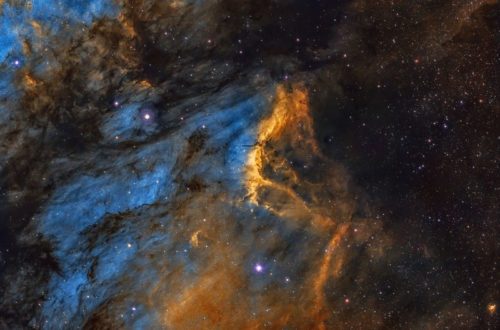Why Astronomy and Astrophysics Aren’t the Same Thing – And Why It Matters

Astronomy and astrophysics are often used interchangeably, but did you know they’re actually different fields of study?
While both deal with the universe and its contents, astronomy focuses on observing, describing, and explaining celestial objects, while astrophysics applies the principles of physics and chemistry to understand how these objects form, evolve, and interact. This distinction may seem minor, but understanding the difference can lead to a deeper appreciation of the complexity of our universe.
Astronomy vs Astrophysics – What’s the Difference?
Astronomy and astrophysics are two closely related fields that are often confused as being the same thing. However, there are fundamental differences between the two that are important to understand. Astronomy is the study of celestial objects, such as stars, planets, and galaxies, and their properties, behavior, and evolution. It is a broad science that combines observation and theory, relying on telescopes, detectors, and physical models to gather and interpret data.
On the other hand, astrophysics is a branch of physics that applies the laws of physics to understand the behavior and properties of celestial objects. It is both observational and theoretical, using mathematical models alongside real data to explain phenomena.
Understanding the difference between astronomy and astrophysics is critical for accurate analysis. While they may overlap in some areas, they have distinct goals and methods. By knowing when to use each discipline, scientists can gain a more complete understanding of the universe and make more accurate predictions about its behavior.
Why It Matters That We Understand The Difference Between Astronomy and Astrophysics
Understanding the difference between astronomy and astrophysics is not only a matter of semantics, but it also has significant implications for scientific research. While both disciplines share commonalities in terms of their subject matter, they differ in their approach to studying celestial phenomena.
Astronomy focuses on the observation and description of celestial objects and their behavior, while astrophysics seeks to explain the underlying physical processes that govern them.
Knowing the distinction between the two is critical for accurate analysis and interpretation of data. For instance, astronomers may use astrophysics to explain the origin and behavior of celestial objects they observe. Conversely, astrophysicists may rely on astronomy to provide them with data to test their theories.
Furthermore, understanding the differences between astronomy and astrophysics can help to avoid confusion when communicating with other scientists or the public. In short, knowing when to use each discipline is essential for advancing our knowledge of the universe.
Explaining the Fundamentals of Astronomy
Astronomy, as a scientific pursuit, meticulously observes and analyzes celestial bodies and phenomena through a rigorous lens of empirical study. It relies on precise measurements, mathematical models, and theoretical frameworks to decipher the fundamental principles governing the cosmos.
This scientific discipline employs cutting-edge technologies, such as telescopes across the electromagnetic spectrum, spectroscopy, and computational simulations, along with newer tools such as gravitational-wave detectors and neutrino observatories, to unravel the mysteries of the universe. Through systematic observation and experimentation, astronomy continually advances our understanding of the physical laws that shape celestial objects’ properties, behaviors, and interactions, fostering a deeper comprehension of the cosmos’s scientific intricacies.
Examining How Astrophysics Fits Into The Picture
In examining how astrophysics fits into the picture, we must understand that it is a branch of physics that focuses on the physical properties and behavior of celestial objects. It involves a combination of physics and astronomy to study the universe and its various phenomena. Astrophysics uses mathematical models and theories to explain the behavior of stars, galaxies, and other celestial objects. It also explores the fundamental principles that govern the universe as a whole.
Understanding Where Both Disciplines Overlap and Differ
Understanding where both disciplines overlap and differ is crucial for anyone interested in astronomy and astrophysics. While both fields deal with the study of celestial objects and phenomena, they differ in their methods and focus.
Astronomy focuses on the observation and study of celestial objects, including planets, stars, and galaxies. In contrast, astrophysics is more concerned with the physical processes that govern these celestial objects.
By understanding where these disciplines overlap, we can gain a deeper appreciation for the complexity of the universe and the interplay between its various components. At the same time, recognizing the differences between the two fields allows us to use each discipline effectively and accurately in our analysis.
Conclusion
In short, it is crucial to understand the differences between astronomy and astrophysics and when to utilize each discipline for accurate analysis. Although the two fields share similarities, such as studying celestial objects, they have distinct approaches and focuses. Astronomy primarily deals with observing and describing the universe, while astrophysics uses the principles of physics to explain the behavior and properties of these objects.
It is also important to note that both disciplines overlap in certain areas. However, knowing when to use each discipline is critical for accurate analysis. For instance, if one wants to understand the composition and behavior of stars, astrophysics would be the appropriate discipline to use. On the other hand, if one is interested in identifying and cataloging celestial objects, astronomy would be the way to go.
Understanding the differences and nuances between astronomy and astrophysics will not only aid in conducting more precise research but also help in appreciating the complexities and wonders of the universe.
FAQs
Which is better: astronomy or astrophysics?
Neither is “better”—it depends on interests and career goals. Astronomy suits those who enjoy observing and cataloging celestial objects, while astrophysics fits those who prefer applying physics to explain how these objects work. In modern academia, most programs are titled astrophysics, so the two often overlap in practice.
Is an astrophysicist the same as an astronomer?
Not exactly. Astronomy is the broader study of celestial bodies and phenomena, while astrophysics focuses on applying physics to explain their behavior and evolution. Both use similar tools, but astrophysicists lean toward theoretical models and phenomena like dark matter, gravitational waves, or neutrinos. Astronomers often specialize in observing stars, planets, or galaxies.
Does NASA hire astrophysicists?
Yes. Astrophysicists play a central role in NASA missions, from building telescopes and analyzing data from Hubble, JWST, and the Roman Space Telescope, to studying black holes, dark matter, and gravitational waves. Most NASA astrophysicists hold a PhD, often starting at universities or research institutes before joining. Students can also enter through internships.
Can you be an astronomer with an astrophysics degree?
Yes. An astrophysics degree provides the physics background needed for astronomy research and observation. Many astronomers today train in astrophysics, working at universities, observatories, or research institutions. Graduate study is usually required, but the degree offers a strong foundation for careers exploring stars, galaxies, and the wider universe.
See also: Astronomy vs. Cosmology
Would you like to receive similar articles by email?





